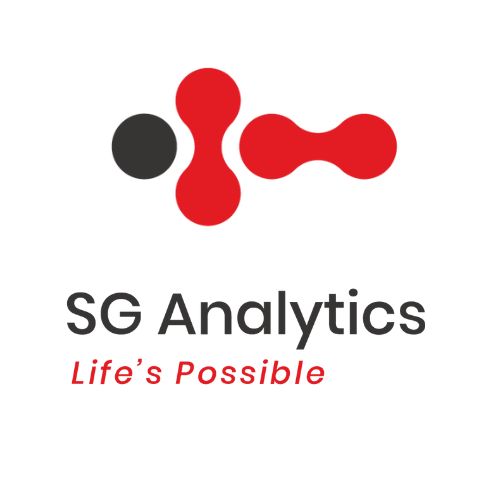- Resources
- Blog
- The Future of AI in Retail Banking: Trends and Predictions
The Future of AI in Retail Banking: Trends and Predictions
AI
Contents
October, 2025
Retail banking industry leaders must strategically explore and embrace artificial intelligence (AI) agents to redefine financial operations and improve stakeholder engagement. The necessity is consistent with the rising popularity of customer-tailored banking experiences. Besides, more innovative, AI-led fraud detection and documentation capabilities have already attracted many financial institutions worldwide. This post will examine what makes AI in retail banking essential for the industry and whether its use cases result in tangible outcomes.
The Significance of AI in Retail Banking
Conventional automation of banking activities suffered from a lack of flexibility. That approach to process automating has a restricted scope of following pre-determined routines. Comparatively, agentic AI demonstrates better suitability for more dynamic banking automation. Other advancements in forecasting market shifts or assessing creditworthiness also justify why many retail banks are adopting AI tools.
Gartner, McKinsey and Company, and Deloitte are some of the world-class organizations that champion this trend. They also underline the need for more capable infrastructure to sustain AI operations. Still, the key ingredient to actualizing retail banks’ AI ambitions is encouraging more professionals to master prompt engineering. As more bankers understand the benefits of using AI agents, the demand for such skills will only increase.
The Future of AI in Retail Banking: Trends and Predictions
1. Real-World Implementations of AI Will Modernize Retail Banking
Artificial intelligence adoption positively correlates with actual customer satisfaction (CSAT) scores, and retail banking professionals stand to gain from letting AI agents or chatbots streamline reporting or transaction processing activities. Other practical applications might also empower retail banks’ customers to seek help updating personal details, changing nominees, or comparing saving schemes.
Personalized banking advisory powered by virtual agents can be quicker than waiting for human representatives’ availability. Meanwhile, AI can be trained to detect, prevent, and alert about potentially suspicious usage of online banking features. Similar predictive intelligence will further help managers anticipate customers’ needs for credit assistance or trading early on.
Regardless, a dedicated AI strategy will be crucial for retail banks wanting to coordinate prototyping, testing, optimizing, and deploying AI agents. Using that strategy must offer verifiable performance gains across all banking operations.
Read more: Artificial Intelligence (AI) is Transforming the Financial Services Industry
2. Every Retail Banker Will Know and Adopt the Best AI Integration Practices
Realizing the full potential of AI in the retail banking industry mandates a sharp focus on data quality assurance and developer selection. The former helps combat the biases due to incomplete, irrelevant, outdated, or duplicated database records. The latter implies that retail bankers must make informed decisions about finding the best technology consulting services providers who follow the best integration strategies.
For example, hyper-personalization indicates that retail banks will handle extensive personally identifying information (PII). This increased data processing scope will also increase privacy and governance compliance liabilities. So, the selected specialists must deliver agentic AI, predictive insight discovery, and digital customer service support while ensuring no legal problems will arise in the future.
Precautionary best practices to leverage artificial intelligence retail banking involve periodic employee upskilling and algorithmic modifications. After all, retail banks might develop or procure the top-in-the-class AI agents. However, if employees cannot correctly use them, that is wasteful. Likewise, installing AI programs and failing to update or replace them can exacerbate cybersecurity threats as code vulnerabilities remain unfixed.
Read more: Private Banking Industry Trends – 2025 Outlook
3. Agentic AI Will Accelerate Retail Banking Workflows
AI agents immediately perform tasks vital to accurate loan processing, compliance checks, and customer grievance resolution. Therefore, retail banks can re-assign the available financial professionals to complex strategic functions.
Today, stakeholders expect agentic AI to enhance productivity, and Accenture’s Banking Trends 2024 document suggests generative AI might boost it by 22 to 30 percent. More efficient retail banking decreases operational costs. So, the profitability of banks will increase once AI integration is completed. Ultimately, improvements in the cost-to-income ratio that effectively facilitate top-line growth reinforce their competitive advantage.
For illustration, customized AI agents can summarize or check detailed legal documents for faster loan approvals. They might also help bankers locate errors in reports with clever ideas to rectify them.
Read more: AI is Transforming Market Research – Role of AI in Market Research

Challenges that Retail Banks Must Overcome for Successful AI Adoption
1. Data Protection
The retail banking industry must prudently navigate several challenges in implementing artificial intelligence (AI) successfully. In this regard, data privacy and enterprise data security are of the highest concern. Since AI systems are dependent on customer data, retail banks must leave no stone unturned to protect them against data breaches. Moreover, they must mitigate the risks of natural data corruption, unauthorized modifications, version conflicts, vendor lock-ins, and misuse.
2. Legal Requirements
Regulatory compliance challenges also vary from region to region. So, retail banking professionals cannot use the same compliance assurance approach in every country. As a solution, they must collaborate with global and local experts to satisfy anti-money laundering (AML) and related requirements.
3. Bias Reduction
Algorithmic biases that might contribute to discriminatory treatment in lending and other services must be eliminated. They can shake the stakeholders’ faith in the banking system, likely attracting regulators’ ire and upsetting socio-economic harmony.
4. Multi-Format Compatibility
Any agentic AI optimized for reporting must also support broad documentation formats and data types. Otherwise, legacy system integration will be arduous. The subsequent limitations in scalability will prevent retail bankers from unlocking the maximum potential of AI integration.
5. Strategic Team Building
Finally, a lack of straightforward artificial intelligence strategy and relevant talent must alert all stakeholders. Crafting the strategy allows for better coordination while recruiting or consulting experienced agentic AI providers, making implementation hassle-free. Transparently communicating the use of AI is also vital.
Conclusion
The retail banking industry will emphasize the strategic adoption of artificial intelligence. Related trends will make customer experience personalization, loan processing, and compliance assurance more manageable. AI-powered automation will also help retail bankers enjoy higher profitability and better CSAT scores.
Agentic AI will equip customers with granular details about banking, credit scores, and fraud prevention. It will empower retail banks to reduce redundant tasks and legacy system dependence. Bankers can ask AI agents to interpret documentation, estimate customer needs, and examine compliance burdens.
The above trends and predictions also necessitate addressing implementation challenges like data quality issues, biases, and skilled professional shortages. Thankfully, devising a reliable, outcome-oriented AI strategy can guide retail banking providers.
About SG Analytics
SG Analytics (SGA) is an industry-leading global data solutions firm providing data-centric research and contextual analytics services to its clients, including Fortune 500 companies, across BFSI, Technology, Media & Entertainment, and Healthcare sectors. Established in 2007, SG Analytics is a Great Place to Work® (GPTW) certified company with a team of over 1200 employees and a presence across the U.S.A., the UK, Switzerland, Poland, and India.
Apart from being recognized by reputed firms such as Gartner, Everest Group, and ISG, SGA has been featured in the elite Deloitte Technology Fast 50 India 2023 and APAC 2024 High Growth Companies by the Financial Times & Statista.
Related Tags
AI AI - Artificial Intelligence Banking BFSI Retail BankingAuthor

SGA Knowledge Team
Contents